21, January 2022
Double Standard: Total Energies withdraws from Myanmar over worsening abuses but remains key sponsor of the Africa Cup of Nations 0
It has often been said that helping to promote human rights globally has always had a political dimension. The so-called world powers often press these issues in the case of those countries of which they disapprove and ignore or downplay transgressions by friendly countries.
The recent decision by French energy giant Total Energies to withdraw from Myanmar over what the company described as “worsening human rights abuses” and Total Energies continued financial support and investment in the current Africa Cup of Nations holding in Cameroon-a nation with the worse human rights record in Africa has finally justified the assertion that the use of human rights as a policy tool, and hence the politicization of the human rights issue, has attained new heights.
French oil giant Total Energies on Friday said it would withdraw from Myanmar over “worsening” human rights abuses committed since the country’s military took power in a February 2021 coup.
Total Energies said “The situation, in terms of human rights and more generally the rule of law, which have kept worsening in Myanmar… has led us to reassess the situation and no longer allows TotalEnergies to make a sufficiently positive contribution in the country.”
Cameroon Intelligence Report understands the French energy giant will withdraw from its Yadana gas field in the Andaman Sea, which provides electricity to the local Burmese and Thai population, six months at the latest after the expiry of its contractual period.
The company also said it had not identified any means to sanction the military junta without avoiding stopping gas production and ensuing payments to the military-controlled Myanmar Oil and Gas Enterprise (MOGE).
However, for such Total Energies measures to be effective, they must apply to all countries in an equal fashion. Yet this has never been the case. Several countries in Africa including Cameroon have contravened international standards of human rights, and yet they have received very different treatment.
It will soon be five years since the government of Cameroon made a huge and costly mistake by thinking that all political issues must only be addressed through repression and oppression. After close to five years of fighting, the President Paul Biya regime has transformed the English-speaking part of the country into a massive killing field.
The madness has lasted for too long and Total Energies is yet to see that it is time for common-sense and wisdom to prevail. The reckless killing of English speaking Cameroonians by soldiers militarily equip with money provided from business transactions with Total Energies only underscores the fact the French energy giant is interested in giving a slap on the wrist to the 40-year old Biya regime in Yaoundé.
This special treatment of the Francophone dominated Biya regime in Yaoundé by the French administration and French multinationals has served neither that country nor French interest well. It has emboldened Cameroon under the 88-year old President Biya to continue its disregard for human rights and support for international crime groups without fear of any retaliation.
The story of the armed kidnapping of 10 Anglophone Cameroon academics now known as the NERA 10 in Abuja and armed smuggling to Yaoundé under cover of darkness; the story of their incommunicado detention at DIA in Nigeria and later at SED in Cameroun; and the story of their nocturnal ‘trial’,‘ conviction’ and ‘sentence’ to life by Cameroun’s Tribunal Militaire – all this was shrouded in complete mystery and illegality. The Nera 10 were kidnapped by plain clothes Nigerian military in a joint operation with members of Cameroun’s military. It is now known that they were smuggled out to Yaoundé by members of the armed forces of Cameroun with the complicity of Nigeria’s military. The illegality of their seizure has further compounded the illegal refoulement of all ten of them, refugees and certified asylees, back to Cameroun, back to the regime and country from which they are escaping persecution and possible death. Upon arrival in Yaoundé and after about a year of detention at SED under atrocious conditions, the Nera 10 were moved to the cramped and insalubrious life-threatening Kondengui prison, and then arraigned before the Tribunal Militaire, Yaoundé- a terror agency of the Yaoundé regime. After more than a year and a half of detention, the Nera 10 were hurriedly brought before that tribunal on a certain night and put through the motion of a ‘trial’ under cover of darkness. They are denied access to counsel. They are not given the opportunity to be heard. They are ‘convicted’, and ‘sentenced’ to life imprisonment and a fine of more than US$525 million each.
For 5 years and counting, the Cameroon government Francophone dominated military and their private militias have been committing genocide in English speaking Cameroon. More than 32,500+ civilians have been killed; over a million children are out of school; 550+ villages have been razed down, 3,000+ are presently in detention centers and prisons; hundreds of our women and girls have been raped; thousands of our loved ones are missing. The Norwegian Refugees Commission (NRC) has stated two years in a roll that this is the world’s most under-reported crisis – obviously because French multinationals such as Total Energies are helping the Biya regime to block access to the international community and are shielding and trying to clean up the crimes they are committing in English speaking Cameroons.
The special treatment of Francophone African dictators has undermined the cause of human rights throughout the sub Saharan region and has led to growing cynicism regarding the international community’s commitment to upholding human rights-the aftermath being that coups are being celebrated in countries such as Mali and Guinea. Like peace and security, human rights are indivisible. Either the same standards and principles are applied to all and transgressors are punished equally or the defense of human rights will be reduced to mere rhetoric that convinces no one.
By Soter Tarh Agbaw-Ebai
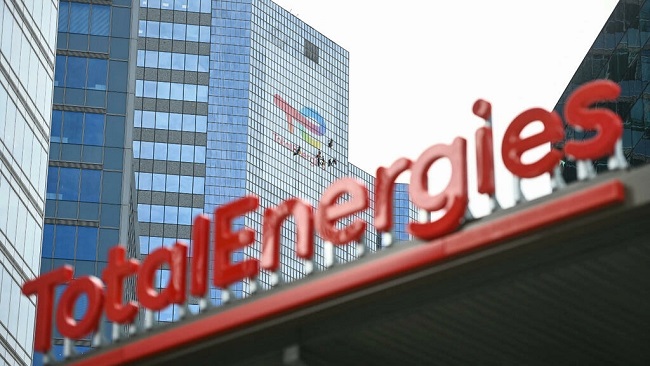
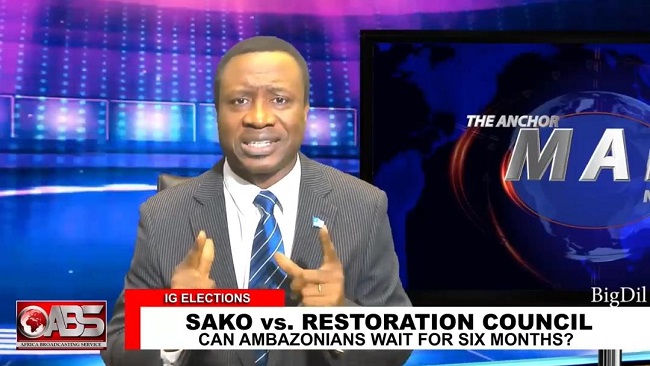
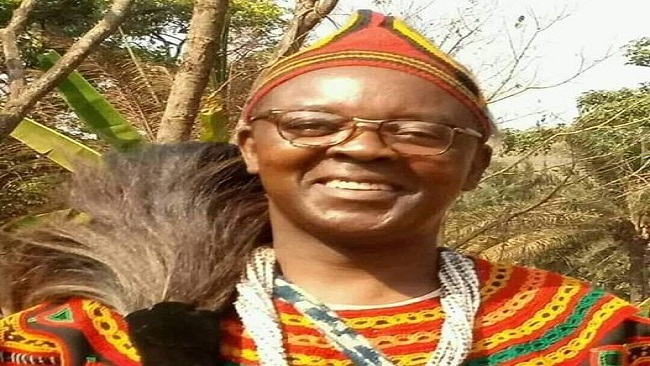
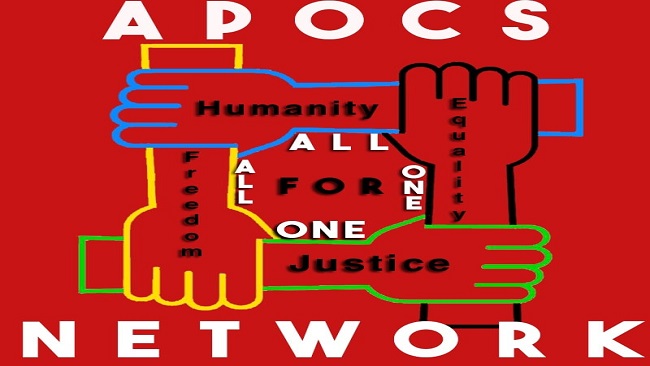
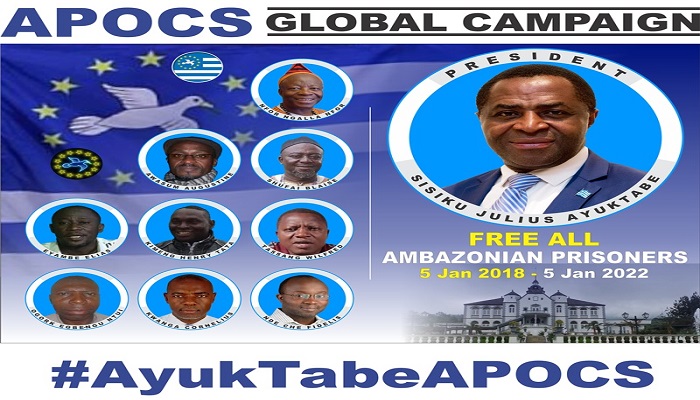
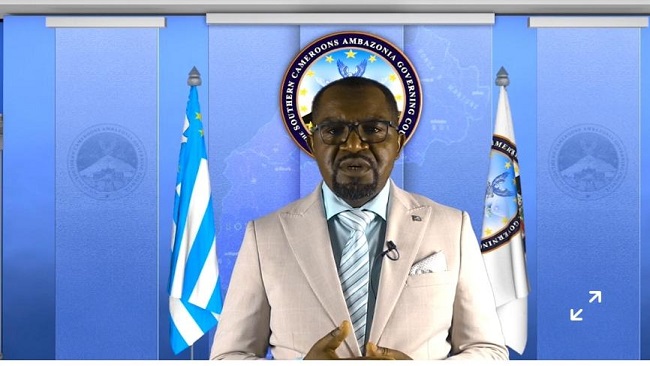


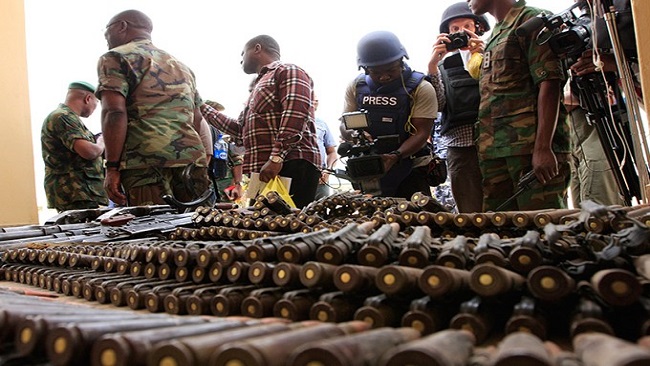














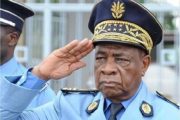



29, January 2022
The Ugly side of the beautiful game: Olembe stampede removed the plaster Biya was trying to put over a broken bone 0
The beautiful game. These three words are among the most dangerously abused words in the English language. The romanticisation of football has given the sport so much power that it can get away with anything, even responsibility for the deaths of people who merely wanted to watch their team play.
It’s this romanticism that makes us turn the other way when the sport, its players and fans are exploited for our entertainment. It’s because of this power that vile, murderous and authoritarian regimes are celebrated when they use their vast financial resources, some of which are obtained through the abuse of human rights, to help a football club win trophies.
It’s because of this power that Gianni Infantino, president of world football governing body Fifa, can say with a straight face that should the World Cup be played every two years instead of the current four, fewer African migrants would die in the Mediterranean Sea trying to make their way to Europe and a better life. His campaign for a biennial global tournament has been heavily criticised as a money-making scheme that puts neither the game nor players’ interests at heart.
Infantino is among many men, including generals and dictators, who have abused the beautiful game for their own wealth and to improve their image. Cameroon’s President Paul Biya is among those men. The 88-year-old has ruled the Central African nation since 1982. Cameroonian philosopher Achille Mbembe is assumed to have had Biya, and others like him, in mind when he wrote of a rapacious political caste for whom a “violent quest for grandeur makes vulgarity and wrongdoing its main mode of existence”. Biya is now under immense pressure from his people to step down, with the country’s economy tanking and a political crisis that has been raging for five years.
The president who promised to be a leader for all Cameroonians has led a regime that has marginalised the English-speaking minority. Instead of listening to their pleas, the government has reacted with force to the protests organised to shine a light on the suffering that the minority group has endured in Cameroon. More than 4 000 people have been killed and half a million displaced in what has come to be known as the Anglophone crisis.
Sleight of hand
The continent has been largely silent about this crisis. It is likely why there hasn’t been vociferous criticism of Cameroon hosting the 2021 Africa Cup of Nations (Afcon). The tournament is part of Biya’s grand plan to win over the youth and paper over the cracks in his regime: a month-long party for the football-obsessed country focuses their attention on the great talent on display rather than his failings.
So far it has worked. Even after the stampede at Olembé Stadium that claimed eight lives, the country’s appetite for the competition remains high. It’s ironic that the stampede happened at the stadium Biya controversially named after himself and spent millions of dollars on, a vanity project to keep his name eternal and help boost his dwindling support. Now, when you search for the stadium online, the uppermost results are reports about the stampede deaths and not its beauty, extravagance, or even the man himself. The state reportedly spent $700 million (R10.8 billion) to build stadiums and improve roads for the Afcon in an extremely expensive public relations exercise.
The stampede removed the plaster Biya was trying to put over a broken bone. Attendance has generally been poor because of high ticket prices that many Cameroonians cannot afford owing to the meagre wages they earn. The low vaccination rate, with only an estimated 3% of the population having been jabbed, has not helped with Covid-19 safety protocols. Only those who are fully vaccinated and can produce a negative polymerase chain reaction test can attend the games.
The Anglophone crisis has also loomed large during the tournament. To avoid embarrassment, the government has limited movement in the English-speaking regions and installed a heavy police and army presence. The situation is so volatile that during the promotion of the Afcon in the region, Mola the mascot wore a bulletproof vest.
Confederation of African Football (CAF) president Patrice Motsepe used the tired line about football having the power to unite people when asked about the threats the Anglophone crisis posed, and more recently when asked if the Afcon should continue after the death of eight people at a stadium.
Lack of safety
As news of the stampede spread during Cameroon’s 2-1 win over Comoros on 24 January, the show went on inside Olembé Stadium – while people were dying. Some called for the Afcon to be called off, questioning the callousness of continuing. But halting the tournament is a no-go for cash-strapped CAF, which wouldn’t dare touch the goose that lays golden eggs, regardless of how many lives are lost.
A thorough investigation into the cause of the stampede is necessary, and those responsible must be held accountable. Some survivors have already shared their stories. The common thread is that access was delayed because of blocked entrances and when spectators tried to enter through gate S, after a long wait, it was locked. This resulted in a deadly surge when the crowd forced its way into the stadium. Some of those pushing their way in allegedly didn’t have tickets. And a six-year-old boy, among others, died because of this.
This stampede should serve as a reminder to Cameroon to not only focus on policing the stadiums, but also on creating a safe and secure environment. This is the biggest problem with most authoritarian states on the continent: more resources are spent on policing and instilling fear than on public safety.
The power football holds could be harnessed to bring about social change in Cameroon. In Egypt and Algeria, fanatical and organised groups of supporters known as ultras played a key role in the removal of Hosni Mubarak and Abdelaziz Bouteflika. “Football is intrinsically political. Under the right circumstances, it can contribute to radical change,” writes Gabriel Kuhn in Soccer vs. the State.
Kuhn says “football stadiums can also be sites for expressing dissatisfaction with authoritarian regimes. A defeat in football can also become a defeat for an authoritarian ruler. The football stadiums of Africa – like those of other continents – are locations of opposition or counterpower. Football is a medium to execute and resist power.”
Advantage and opportunity
Opportunists have selfishly used the sport to their advantage. It’s time that the true owners of the game reclaim it, reshape it into something more palatable and use the power football has to bring about change. Football cannot and will never change the world on its own; that’s another romantic notion of followers of the game. But in the right hands it can be a vehicle to bring about social change. That, however, would only be a start. Serious work outside the pitch would be needed to ensure that the change lasts.
“At the end of the 1994 World Cup, every child born in Brazil was named Romario, and the turf of the stadium in Los Angeles was sold off like pizza, at $20 a slice. A bit of insanity worthy of a better cause? A primitive and vulgar business? A bag of tricks manipulated by the owners? I’m one of those who believe that football might be all that, but it is also much more: a feast of the eyes that watch it and a joy for the body that plays it,” writes one of the biggest football romantics and critics, Uruguayan author Eduardo Galeano, in Football In Sun and Shadow.
Culled from New Frame